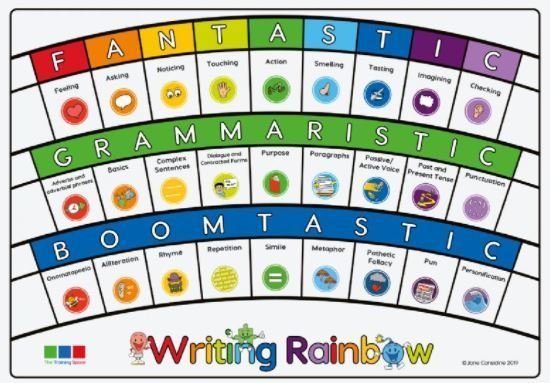At Mead Primary School we believe that a quality English curriculum should develop children’s love of reading, writing and discussion. We recognise the importance of nurturing a culture where children take pride in their writing, can write clearly and accurately and adapt their language and style for a range of contexts. We want to inspire children to be confident in the art of speaking and listening and who can use discussion to communicate and further their learning.
We believe that children need to develop a secure knowledge-base in English, which follows a clear pathway of progression as they advance through the primary curriculum. We believe that a secure basis in English skills is crucial to a high quality education and will give our children the tools they need to participate fully as a member of society.
Knowledge:
Our pupils will be challenged to learn advanced vocabulary. They will also learn grammatical rules and strategies for producing engaging pieces of writing.
Skills:
With a strong command of both the spoken and the written word, children will have the skills required to write in detail and in length for different purposes.They will be able to write across a range of genres and are able to control their speaking and writing consciously, using correct Standard English, whilst also experimenting with authorial tone and technique.
Enrichment:
English underpins so much of our pupils’ learning. Many of the experiences that we offer across the curriculum support our literacy objectives, but we also offer focused experiences, such as trips and visiting performers.
Writing
As a school we have adopted “The Write Stuff” by Jane Constantine to bring clarity to the mechanics of writing. ‘The Write Stuff’ follows a method called ‘Sentence Stacking’ which refers to the fact that sentences are stacked together and organised to engage children with short, intensive moments of learning that they can then immediately apply to their own writing.
This approach makes sure that all of our children are exposed to high quality texts that stimulate quality responses to reading, high quality writing and purposeful speaking and listening opportunities.
Our curriculum ensures that all children have plenty of opportunities to write for different purposes. We encourage writing through all curriculum areas and use quality reading texts to model examples of good writing. Writing is taught through a number of different strategies. We believe that children need lots of rich speaking and drama activities to give them the imagination and the experiences that will equip them to become good writers.
An individual lesson is based on a sentence model, broken in to three chunks:
The Write Stuff is based on two guiding principles; teaching sequences that slide between experience days and sentence stacking lessons. With modelling at the heart of them, the sentence stacking lessons are broken into bite-sized chunks and taught under the structural framework of The Writing Rainbow. Teachers prepare children for writing by modelling the ideas, grammar or techniques of writing.
● Initiate section – a stimulus to capture the children’s imagination and set up a sentence.
● Model section – the teacher close models a sentence that outlines clear writing features and techniques.
● Enable section – the children write their sentence, following the model.
“The Write Stuff” also reinforces grammar through the use of:
● The FANTASTICS which are an acronym that summarise the ideas of writing.
● The GRAMMARISTICSis a classroom tool that enables the teacher to drive key grammar messages.
● The BOOMBASTICS which helps children capture 10 ways of adding drama and poetic devices to writing in
a vivid visual.

Reading
At Mead Primary School, we believe that reading is an essential life skill and we are committed to enabling our children to become lifelong readers. We believe that no pupil’s educational success should be limited by their socio-economic background and our pupils should be reading confidently by 6 so that they can access a rich curriculum.
At the heart of our strategy is our drive to foster a love of reading, enriching children’s learning through carefully designed teaching activities that utilise imaginative stories and thought provoking texts.
Reading is a skill that enables children to develop their learning across the wider curriculum and lays the foundations for success in future lines of study and employment. We recognise the importance of taking a consistent whole school approach to the teaching of reading in order to close any gaps and to target the highest possible number of children attaining the expected standard or higher.
At The Learning Federation, we use the Ruth Misken ‘Read Write Inc.’ Phonics in Early Years and KS1 to teach pupils to read accurately and fluently with good comprehension. In Years 2 to 6 we use the Literacy Shed Plus when teaching pupils to develop comprehension and writing skills, using grammar and vocabulary.
RWI Phonics
Reading: pupils learn the English alphabetic code: first they learn one way to read the 40+ sounds and blend these sounds into words, then learn to read the same sounds with alternative graphemes. Phonic books are closely matched to their increasing knowledge of phonics and ‘tricky’ words and, as pupils re-read the stories, their fluency increases. Along with a thought-provoking introduction, prompts for thinking out loud and discussion, pupils are helped to read with a storyteller’s voice.
